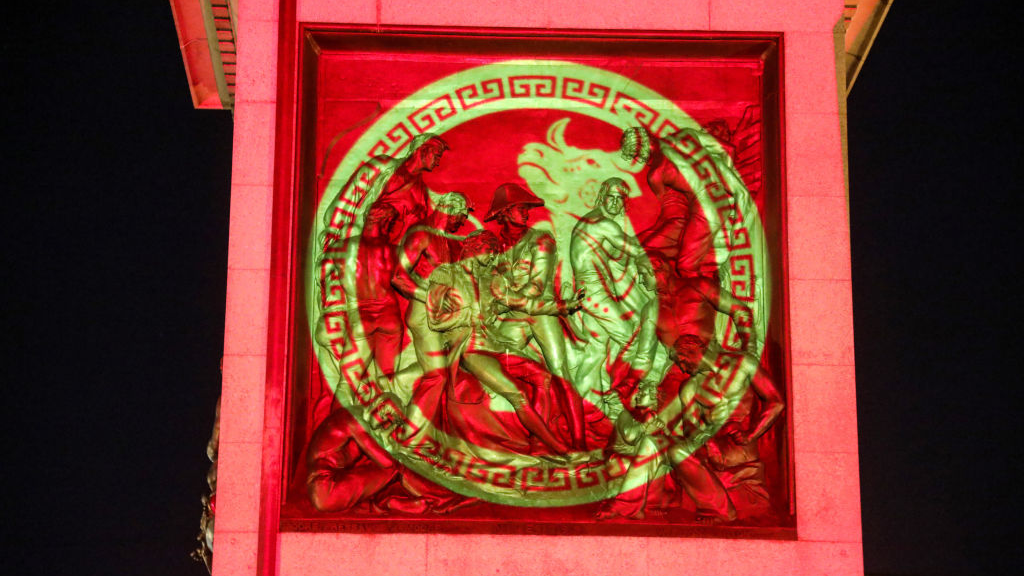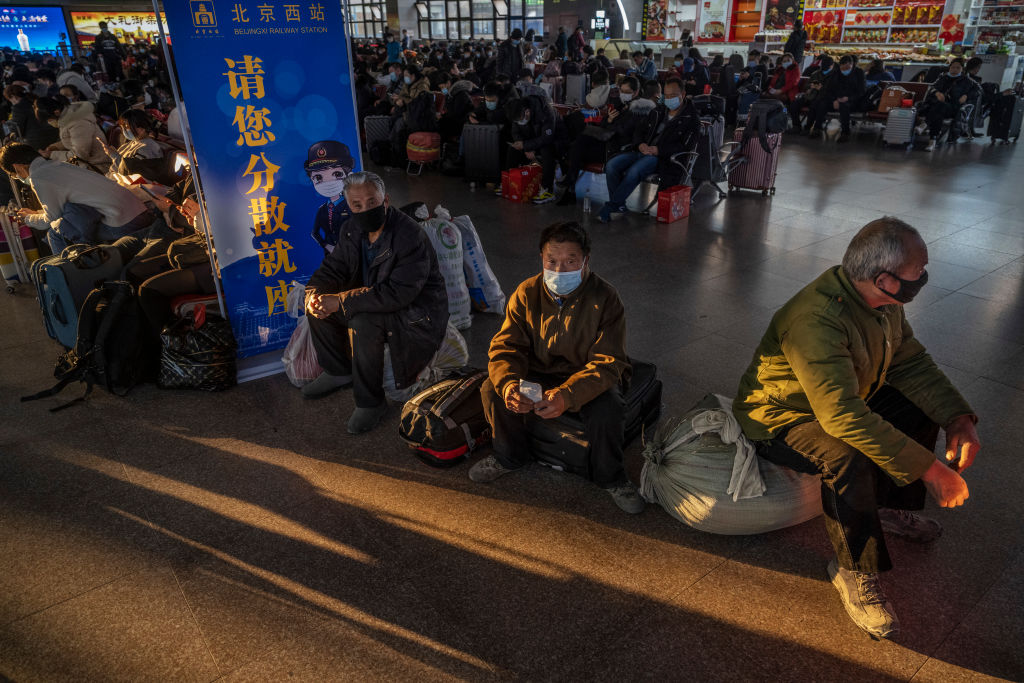
An Ox projected onto Nelson's Column in London's Trafalgar Square. /Getty
An Ox projected onto Nelson's Column in London's Trafalgar Square. /Getty
Editor's note: Liu Shinan is a senior columnist of China Daily. The article reflects the author's opinion, and not necessarily the views of CGTN.
With the Lunar New Year around the corner, the media are supposed to focus, once again, on "Chunyun" – the annual mass transportation of people across China – and "nianwei" – the atmosphere in which people celebrate the most important festival of the year. Things, however, look somewhat different from the past. Both have presented something new for media outlets in their coverage of the two topics.
Dubbed the "largest human migration in the world," Chunyun carries hundreds of millions of people by trains, planes, buses and other means of transport, from where they are employed or educated to their hometown and then take them back to their cities of residence after the conclusion of the Spring Festival vacation.
Behind the phenomenon is the Chinese people's homesickness and missing of their family members back at home. "Having earned money or not, one must go home for the yearend family reunion," goes an old saying. For young migrant workers – both white-collar and blue-collar – reunions with their parents is what they most look forward to during the year.
Every year, Chunyun generates numerous stories of ordinary people overcoming all kinds of difficulties to go home. For instance, 11 years ago, a photojournalist caught the image of an anonymous woman migrant worker at the Nanchang Railway Station. With a towering, crammed-to-the-full sack tied to her back and a backpack dangling on her left arm, the woman bent her body to balance the weight but looked forward with a determined expression while holding a baby girl tightly in her right arm against her chest. The photo moved the whole country as it was very symbolic of ordinary Chinese workers: the heavy burden on her back; the hope held in her arms and the determination in her eyes. And many wondered what happened to the woman later.
Last month, a Xinhua News Agency photojournalist found the woman in Sichuan Province. It was learned that with the help from the local government, the woman had lifted her family out of poverty by growing tobacco and built a new house to replace her old earthen hut.
Similar stories have been a favorite topic among media outlets in their coverage of Chunyun over the years.
This year's Chunyun, however, seems to be a different story.
Because of the uncertainties in the country's recent, though on a very small scale, resurgence of COVID-19 infection, many people opted to stay in their workplaces for the Spring Festival holidays rather than go home. That meant a dramatic reduction in the number of travelers. According to a press conference given by a State Council office on February 10, some 48 million people more than last year have chosen to stay in the cities where they work. The figure was taken from a survey conducted in 36 major cities. That is borne out by the real conditions in railway stations. My son-in-law, who came to Beijing from Wuhan the day before yesterday, said his train had many empty seats.
That has given rise to another media-favored topic about the lunar New Year – the "faded nianwei."

People wear protective masks as they wait to board trains for the upcoming Chinese New Year marking the Year of the Ox and Spring Festival at Beijing West Station on February 10, 2021 in Beijing, China. /Getty
People wear protective masks as they wait to board trains for the upcoming Chinese New Year marking the Year of the Ox and Spring Festival at Beijing West Station on February 10, 2021 in Beijing, China. /Getty
In recent years, there has been much complaining about the "waning of nianwei" given the changes seen in the way people celebrated the Spring Festival. For instance, many people chose to spend the holidays by traveling overseas or to warmer places in southern China instead of going to hometowns. They sent New Year's greetings to their relatives through social media rather than visiting them in person and instead went to cinemas or played online games for fun in preference to going to dinner parties or playing mahjong with their old pals.
The reduced number of Spring Festival travelers this year aggravated this concern. The logic is simple – the smaller the number of homegoers, the lighter the feel of nianwei.
One fact, however, contradicts that concern.
Since the beginning of the Chunyun period, many netizens – a myriad of them – have posted pictures on social media showing the food their parents or other relatives had sent them via courier service. The food with their hometowns' special flavor includes preserved pork and fish, sausages, frozen mutton or beef pieces, dumplings, and even seasonings. A woman in Shanghai received a whole sheep from her parents back in her home province of Shandong. Another young woman also received a whole sheep from her brother in Inner Mongolia. Some parents were so careful they cut the material into small pieces and shipped them along with ginger, spring onion and washed coriander as well as specific recipes for their children to cook a New Year's Eve meal.
"Wow, what a strong feel of nianwei!" many netizens exclaimed.
I also received several boxes of hometown specialties from my brother, sister, niece, and an old classmate in Hubei Province. The specialties include "fish cake," ciba (glutinous rice cake) and wild lotus roots – all unique to my home province, which is known as the "province of thousands of lakes." They evoked my nostalgia for the place that had nourished my birth and where I grew up, as well as a strong sense of missing loved ones back in my old hometown.
The so-called nianwei involves to a large extent the affection between family members and nostalgia about hometown. So long as that feeling does not wane, never would nianwei. And Chunyun will resume its merry hustle and bustle next year as COVID-19 is expected to die away.
(If you want to contribute and have specific expertise, please contact us at opinions@cgtn.com.)

